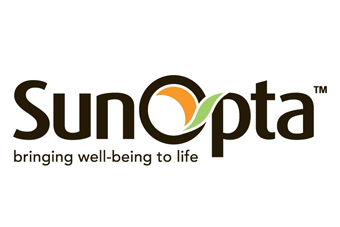Last week, the Associated Press (AP) reported on a plan by the United States Department of Agriculture (USDA) to launch a certification and labeling program for products that contain no genetically modified ingredients, commonly known as GMOs. However, a recent article published by The New York Times revealed that the program is simply an extension of the agency’s “process verification” service, which has existed for years and is for the first time being applied for use in the certification of facility that produces non-GMO ingredients.
The Times stated that SunOpta, a global supplier and processor of natural and organic ingredients and finished products, requested and won permission from the USDA to label corn and soy processed in a company-owned plant as non-GMO.
In a press release today issued by SunOpta, Steve Bromley, the company’s CEO, called it a “great honor for SunOpta and consistent with our commitment to Non-GMO and organic food products which are in high demand with today’s consumers.”
“Having USDA verify that we are complying with our standards ensures that our customers can be confident that they are getting the highest quality Non-GMO soybeans and corn,” Bromley said. “We look forward to implementing the USDA [Process Verified Program] at other SunOpta facilities across our vertically integrated platform.”
The SunOpta facility, which is located in Hope, Minn. and accounts for less than 10 percent of its $1.3 billion in annual revenues, will begin using a new “Non-G.M.O./G.E. process verified” label for its corn and soy, according to the Times, which noted that it will have navy and green colors. While packaged corn and soy leaving the plant will feature the new label, finished products that contain the ingredients will not, the Times reported.
The label is the first of its kind allowed by the USDA, according to an internal e-mail that was sent by U.S. Secretary of Agriculture Tom Vilsack and acquired by the AP. Vilsack did not name SunOpta in the e-mail, however, the company contacted the Times to identify itself as the impetus behind the new label.
“The U.S.D.A. came in and looked at our entire process from the beginning to the end, from how we work with farmers and growers to shipping and the quality analysis we do,” Lisa Robinson, SunOpta’s vice president for quality assurance, told the Times.
While Vilsack noted “other companies are already lining up to take advantage of this service,” it is unknown which ones have applied. It is also unclear as to whether or not consumer goods will use the new label on packaging. For now, there are less than a handful of companies that verify consumer packaged goods as non-GMO, and the most-utilized one is hopeful that the U.S. government stays out of that business.
In a statement published on its website, The Non-GMO Project, the leading verification service for products free of genetically modified ingredients, responded to the initial AP report and derivative articles stating that they confused with the USDA program with a pending bill “commonly known as ‘the DARK Act,” in which the agency would “create its own non-GMO certification program and corresponding non-GMO label.”
The Non-GMO Project called it a “deeply flawed bill would also override states’ rights to require mandatory labels on genetically engineered products,” and noted that “consumer advocates are doing everything possible to stop this bill, and we are optimistic it will be defeated.”
